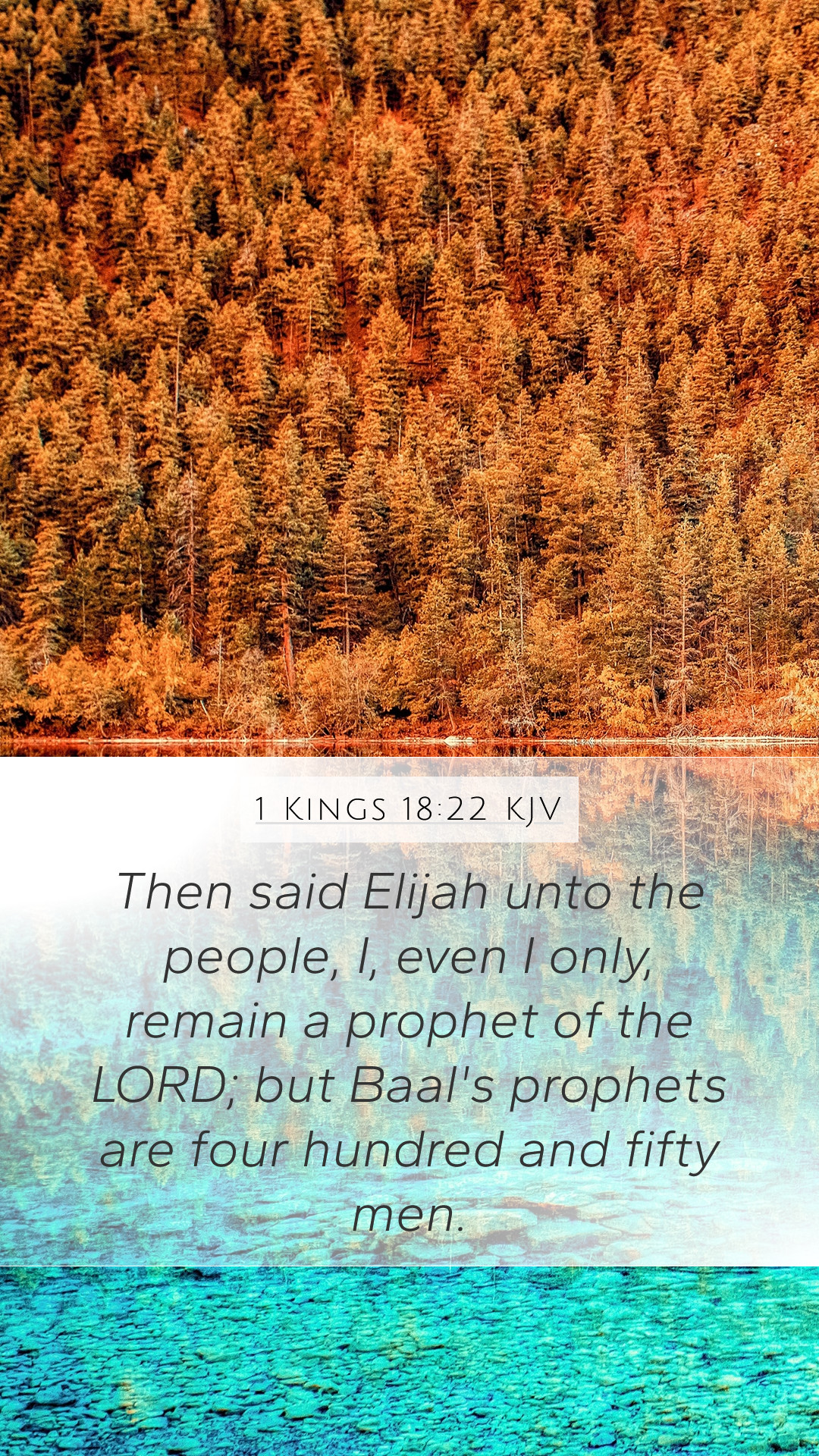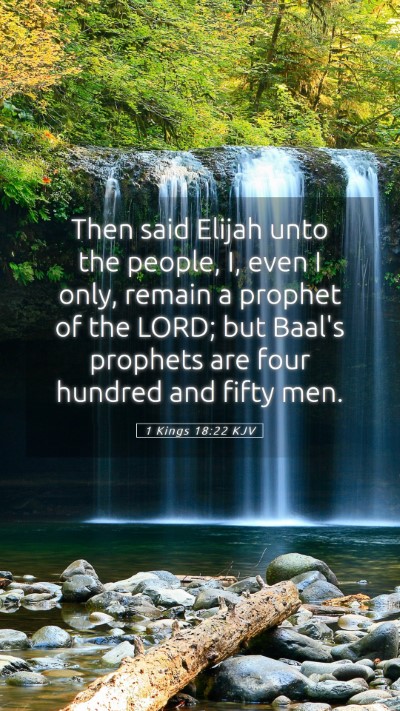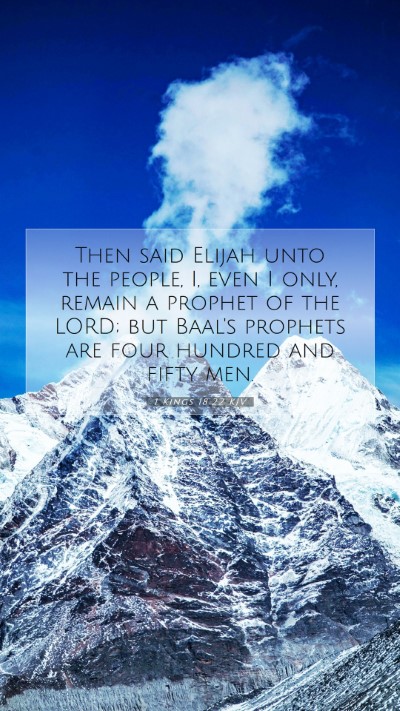Understanding 1 Kings 18:22
Bible Verse: 1 Kings 18:22 - "Then said Elijah unto the people, I, even I only, remain a prophet of the LORD; but Baal's prophets are four hundred and fifty men."
Overview
This verse appears in the context of a crucial confrontation between the prophet Elijah and the prophets of Baal on Mount Carmel. Elijah stands alone against a backdrop of apostasy in Israel, where the worship of Baal had taken a strong foothold.
Bible Verse Meaning from Various Commentaries
-
Matthew Henry's Commentary
Henry emphasizes the solitary position of Elijah as a representative of the true God amidst widespread idolatry. He highlights Elijah's courage to confront the falsehoods of Baal worship and his dependence on God in a time of spiritual desolation. The mention of the 450 prophets of Baal serves to magnify the challenge Elijah faces, which underscores the power of God in overcoming overwhelming odds.
-
Albert Barnes' Commentary
Barnes points out that Elijah representing only himself indicates not just isolation in numbers but also a profound commitment to God’s mission. Barnes elaborates on the implications of such a statement, suggesting that true faith often stands alone against popular opinion. The dynamics at play illustrate the conflict between truth and falsehood, where Elijah’s faithful proclamation serves as a beacon amidst darkness.
-
Adam Clarke's Commentary
Clarke provides a detailed analysis of the cultural and religious practices in Israel during this time. He notes that the prominence of Baal worship reflects a significant apostasy from Yahweh, God's covenant name. Elijah's assertion that he alone remains as a prophet emphasizes his role as a remnant, pointing to the preservation of true worship even when it appears to be extinct.
Key Themes and Insights
The verse encapsulates several critical themes that resonate deeply with contemporary readers seeking biblical understanding:
- Faithfulness in Isolation: Elijah’s experience exemplifies the reality of being a faithful remnant in a society that has turned away from God.
- The Struggle Against Idolatry: The stark contrast between Elijah and the prophets of Baal serves as a reminder of the struggle against modern-day idolatries that can distract from true worship.
- The Call to Stand Firm: Like Elijah, modern believers are encouraged to stand firm in their faith, regardless of external pressures or societal norms.
Application of the Verse
In applying the message of 1 Kings 18:22 to daily life, believers are prompted to consider their commitment to God amid challenges. This verse is a call to authentically live out one’s faith and to be a voice for truth, even when it feels like one stands alone.
Cross-References
- 1 Kings 17:1 - Elijah proclaims a drought as judgment against Israel.
- 2 Kings 2:1-12 - Elijah's transition and the continuation of his prophetic ministry.
- Romans 11:4 - The concept of a remnant preserved by God.
Conclusion
1 Kings 18:22 serves as a powerful reminder of the strength found in faithfulness. As seen in the commentaries, understanding this verse requires a deep look at the implications of standing firm for God in a world fraught with opposition. Through the lens of biblical exegesis, one finds empowerment in the fight against spiritual apathy and an encouragement to trust in God’s ultimate deliverance.


